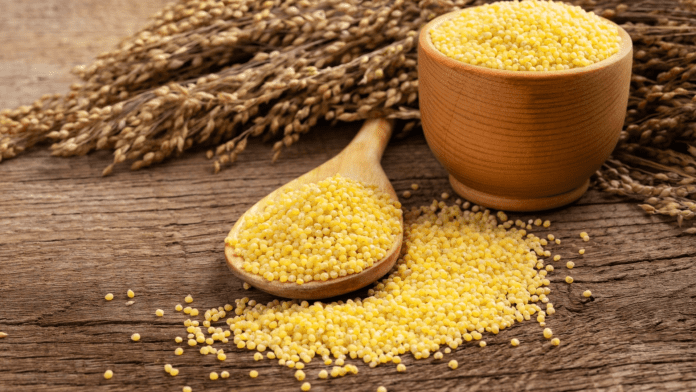Executives from major Indian companies have seized the opportunity presented by the recent G20 Summit in New Delhi and the United Nations’ declaration of 2023 as the International Year of Millets. They are now venturing into international markets with millet-based products, aiming to secure a pioneering position on the global stage.
Suhasini Sampath, Co-Founder of ITC-backed health foods brand Yoga Bar, which makes millet-based snack bars, muesli, chocos and now infant foods under its brand franchise Yoga Baby, said, “We are working very closely with the ITC exports team to take our products to the US and UAE.”
Sampath added, “We were sorting our trademarks in other world markets and now that we’ve gotten those in place, we are going to go aggressive on taking millets overseas.”
Despite the challenges posed by climate change affecting millet cultivation, as well as limitations in domestic storage and processing facilities, companies are embracing the trend.
“We are working on millet-based cone ice-cream, wafer chocolate, cookies and bread. These will be launched gradually in approximately 40 countries where we regularly export our consumer products,” said Jayen Mehta, MD, Amul.
He said the scale-up is in response to “the increase in awareness and interest in millet-based products globally.”
India holds the title of being the largest global producer and the second-largest exporter of millets such as jowar, bajra, and ragi.
Tata Consumer has revealed its strategic move to introduce its Soulfull brand of millet-based cereals to the United Kingdom through a collaborative venture with Tesco.
Marriott International has announced a collaboration with ITC Hotels to introduce a line of millet-based breads at specific hotels throughout the Asia-Pacific region, encompassing countries such as Japan, South Korea, Australia, and Indonesia. Ranju Alex, the Area Vice President of South Asia for Marriott International, highlighted that this partnership not only aims to raise awareness about the nutritional advantages of millets but also emphasizes their adaptability to cultivation in the face of challenging climatic conditions caused by climate change.





